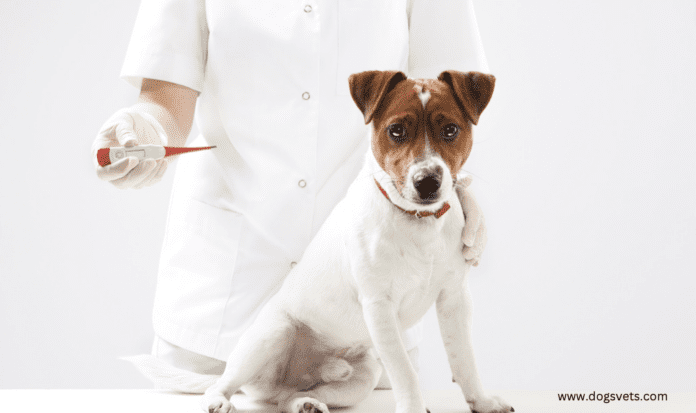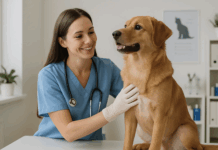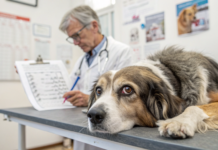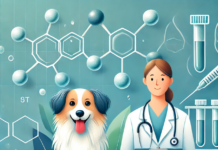Last Updated on November 25, 2022 by Dogs Vets
7 Guidelines for Healthy Living Around Your Pet
Many individuals view their pet as a member of the family who offers them happiness and fun. However, did you know that keeping a pet can also benefit your health?
Pet ownership helps reduce blood pressure, cholesterol, triglyceride levels, and feelings of loneliness.
Pets can also inspire physical activity and time spent outdoors, and give social possibilities.
Despite the numerous advantages of owning a pet, animals can occasionally transmit pathogens that make us sick.
Zoonotic diseases can be transmitted between humans and animals, including our pets.
In the past ten years, there have been human illness outbreaks connected to puppies, rats, hamsters, guinea pigs, turtles, lizards, geckos, hedgehogs, and even water frogs as pets.
You may not understand that the routine care of your pet can result in the transmission of pathogens from animals to humans.
Handling pet food and toys, cleaning cages, and yes, even kissing your pet, can transmit bacteria. Even though they appear clean and healthy, pets may transfer germs.
Knowing about zoonotic illnesses and the easy steps you can take to lessen the risk will allow you to enjoy your pets and maintain your health.
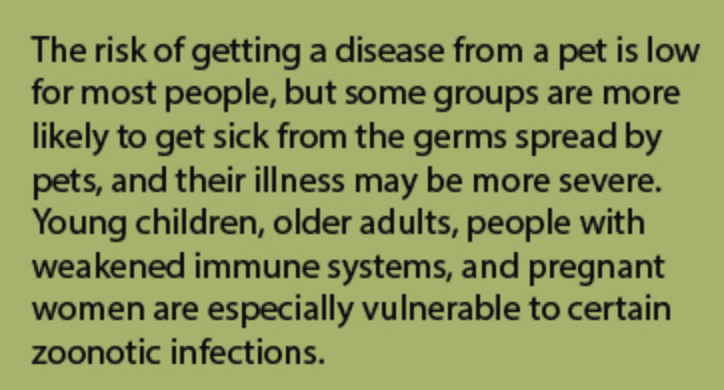
Adopt these 7 simple practices to ensure the health and happiness of yourself, your family, and your pets.
1. Select the proper pet
Not all pets are suitable for all individuals. In addition to considering the pet’s needs, consider who will be living with it. Are there little children in the home, or perhaps an elderly relative?
Certain pets, such as reptiles, amphibians, and rodents, are not suggested for children under the age of 5, adults over the age of 65, and those with compromised immune systems, as they are more likely to become ill.
Consider postponing the adoption of a rodent or cat if you or a family member is pregnant, as these animals might transmit infections that cause birth abnormalities.
Consult your veterinarian regarding pet selection.
2. Maintain your pet’s health
Keeping your pet healthy is beneficial to your own health. Ensure pets have access to a healthy diet, clean water, shelter, and exercise.
In addition, routine veterinary care is essential for your cat. Many pets require routine immunizations, deworming, and flea and tick management to protect them against certain diseases and their owners.
Every dog, cat, hamster, ferret, and iguana should receive lifetime veterinarian treatment. If you suspect your pet may be ill, consult your veterinarian.
Also, incorporate your pets in your disaster preparedness plans to ensure their safety and health during an emergency.
3. Maintain proper hygiene for your pet
Handwashing is one of the most effective ways to stay healthy around animals and can help prevent you from other diseases. After playing with, feeding, or cleaning up after your pet, you should always wash your hands.
Pets can contaminate surfaces in your home with germs; you do not have to come into direct contact with them to become sick.
Keep your pets away from food and beverage preparation, serving, consumption, and storage areas.
To prevent the transmission of parasites and other pathogens, you should always remove dog feces from your yard and public spaces.
If you are pregnant and own a cat, you should avoid cleaning the litter box.
4. Supervise children near your pet or animals.
Always supervise small children around pets, especially if they are a member of the family.
Children, especially those younger than 5-years old, are more susceptible to pet-related illnesses because they frequently put objects in their mouths, touch surfaces that may be contaminated, and are less likely to wash their hands.
Children are more prone to become gravely ill from certain diseases transmitted by pets and are more susceptible to bites and scratches.
Do not permit children to kiss dogs or place their hands or other objects in their mouths after playing with them. Encourage them to wash their hands after interacting with animals.
We all adore our pets, but it is vital to be aware of the risks associated with animal contact, particularly for those who are more susceptible to certain diseases.
5. Schedule Annual Examinations
It is essential to take your cherished pet to the veterinarian for a yearly checkup in order to maintain their health. A yearly examination also affords the opportunity to detect any medical issues before they become severe.
A veterinarian will do a comprehensive examination to ensure that your pet is in peak health. A yearly trip to the veterinarian is also required for vaccinations and drugs, such as flea and heartworm preventives.
6. Socialize Your Pet
Socialization is essential for a pet’s happiness and wellbeing. Numerous species are adapted to live in groups.
Meeting and interacting with others can enhance your pet’s confidence and reduce or eliminate apprehensive or anxious behaviors.
7. Dental Health
Have your pet’s teeth professionally cleaned on a regular basis to maintain their health. It Just as crucial is maintaining proper dental care at home!
Cats and dogs require regular tooth brushing with animal-friendly toothpaste. It may not be an enjoyable task for you or your cat, but it is vital to prevent dental problems.
If you need further advice on maintaining your pet’s dental health, please read our blog post on pet dental care.
Conclusion At the End
Healthy pet practices can help you appreciate your pets while maintaining your health.
How can you ensure the well-being and safety of your pets?
Visits to the veterinarian on a consistent basis are necessary for maintaining the health of your pet. Have a conversation with the veterinary staff on how to maintain your pet in good health.
You should make sure that your pet has a healthy diet, access to clean water, clean bedding, and plenty of opportunities for exercise.
Maintain a regular schedule for giving your pet immunizations, deworming, and treating them for fleas and ticks.
Tips on how a pet can be cared for?
- Provide your pet with nutritious food of the highest possible quality.
- Every day, for at least half an hour, you should take them out for a stroll.
- Give them the necessary immunizations at the appropriate time.
- Maintain a spotless and sanitary setting for them at all times.
- Take your pet to the veterinarian once a week or once a month.
- Interact with them and avoid leaving them alone for extended periods of time.
Facts Check
We hope you enjoyed this article… What are your thoughts?
Please feel free to share this article!
